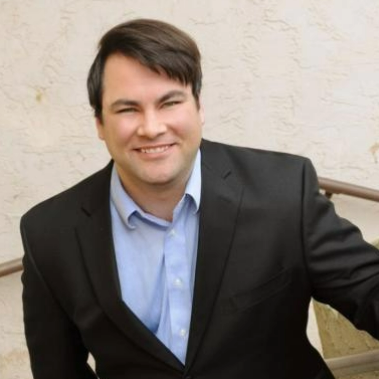Nathan Heiser, Assistant Marion County Prosecutor
Bachelor of Arts in History, 2011
Ohio State graduate Nathan Heiser credits a well-rounded liberal arts education at Ohio State Marion for providing the necessary tools in critical thinking, written, and oral communication that have helped him excel as an attorney.
With perhaps a quarter or two exception, Heiser attended Ohio State Marion from autumn of 2007 to summer of 2011. He completed the majority of his coursework in Marion so that his scholarship, which was specific to the Marion campus, would remain intact. Beginning in his second year of study, Heiser took at least one class on a different campus so that he could take the wide variety of courses that Ohio State offered.
Though he graduated from Ohio State in 2011, Heiser did not complete his education until 2015, earning a master’s degree in political science from Ohio University and a juris doctorate from Ohio Northern University. He practiced law independently from 2015 to 2016, and later worked as a staff attorney at the Third District Court of Appeals in Lima, OH in 2017. Heiser currently serves as an assistant Marion County prosecutor, where he has worked since December 2017.
According to Heiser, the skills nurtured by the study of history have helped him in many ways. “The first is that critical thinking is, well, critical,” said Heiser.
“It must also be coupled with the ability to explain one's positions to those who may well disagree,” he said, “and one must often do this with very little prep time.”
Admittedly, shared Heiser, the sorts of discussion that take place in a classroom are not quite a pressure-cooker in the way that a law school class or a courtroom can be, but it is a start.
“Critical thinking is itself necessary to good writing,” Heiser said. “That too is essential,” he added.
Heiser said, “I write often, and much of my writing requires me to synthesize many fairly complicated ideas over the course of anywhere from 15 to 25 pages in which I get to explain why I should win an appeal.”
“Doing this requires me to keep many parts of an analysis in my head but separate from one another, writing about each in turn. Failure to do this would leave the writing a jumbled mess,” said Heiser. “This is in addition to the fact that writing, even when I do it to explain ideas to other people,” added Heiser, “helps me learn too. In some sense, all of these ideas would be important is a whole host of legal vocations.”
Heiser has written both criminal and civil appellate briefs for cases ranging from Children's Services to adult felonies. He has also advised local agencies on matters of general civil law when the need arises.
“I think the principal value of a history degree to my current work is that it both taught and forced me to (1) organize my thoughts and (2) to put them to paper in a way that made them understandable to those who needed to understand them,” said Heiser.
“Along similar lines,” he added, “anything that nurtures quick wits is useful in a courtroom, and of course there are ways to run a history class that very much accomplish this.”
“I utilize my critical thinking skills and writing skills all the time,” said Heiser. “I could not do what I do in their absence.
"I spend a great deal of time explaining what words and concepts mean in a legal brief before I even begin to talk about the facts of the case I'm working on,” he said, “and the abilities to reason by analogy and argue in the alternative are absolutely necessary to my daily existence.”
Overall, Heiser believed that earning his undergraduate degree from Ohio State was useful in terms of how it has made him marketable,
“I would say that a well-rounded liberal arts education is something that makes people in general more worldly,” Heiser said. “That is a good attribute with which to surround oneself. It is a good thing to have in an office, at a school, etc.”
“The ability to interact with and talk to human beings is a dying art in an age of emojis and Youtube, and the critical thinking and social skills implicitly necessary in a history program are, I think, more interesting and more broadly useful than the more black-and-white thinking that hard sciences seem to impart,” he said.
Heiser emphasized that history, by definition, becomes a bigger part of our world every day as more and more of the world becomes history with the passage of time. Thus, each passing day brings more to study and more ways in which we can relate to history by understanding how it brought us to where we presently are.
“In some sense, the whole legal profession of law is heavily historical,” said Heiser. “It's ancient, but it affects us all the time."
In terms of what he learned from Ohio State Marion faculty, Heiser felt he picked up the important skill of communicating his ideas effectively in both oral and written form. “I would have to say that I came in as a good writer,” said Heiser, “and yet having my work critiqued and handed back to me all marked up was a real growth opportunity.”
He said, “it is valuable to be around people who make people better writers and better thinkers and better students owing to their own high standards for what is possible and what is expected."
